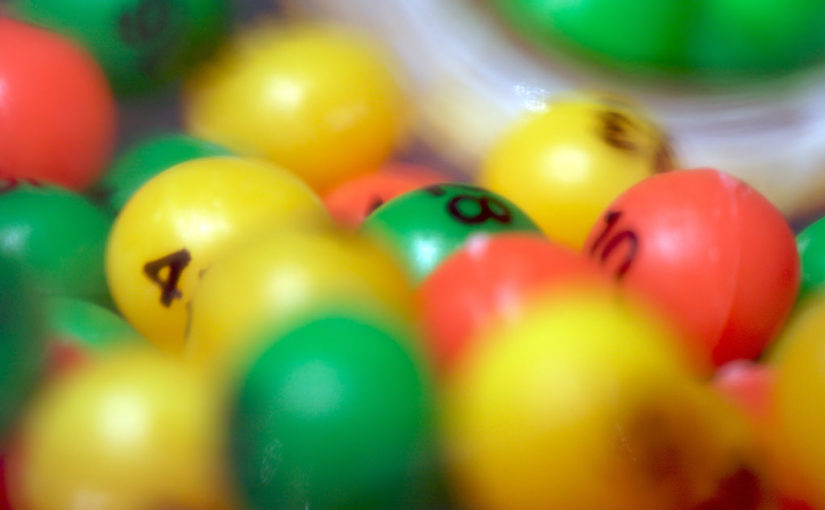Notes and half-baked ideas on how lottery-style incentives could help people with problems get their lives back on track
Prize-Linked Savings (PLS) could be particularly useful for ex-cons, recovering addicts, veterans and others who may be struggling to integrate back into society after some trauma or hard times.
Here’s how Stephen J. Dubner breaks down PLS on his Freakonomics Radio podcast: In a nutshell, PLS is a kind of savings account that pools some of the interest from all depositors and pays out a big lottery prize every month or so. It combines the thrill of the lottery with the safety of a savings account. It’s sometimes called a “no-lose lottery,” since a depositor is automatically entered into the lottery but can’t lose the original money she deposits.
Most of the PLS stuff I’ve read is geared toward getting the unbanked population to open up checking or savings accounts. It’s usually framed around efforts to reduce poverty and crime, and increase financial security.
[A] programme in Michigan in 2009 gave credit-union members a chance to win raffle prizes for every $25 deposited. Prize-linked savings programmes have been successful in Germany, Brazil and India, among other places, but in America, where states tend to ban private lotteries and banks (but not necessarily credit unions) and are not allowed to run lotteries, winning widespread political approval may prove harder to get. (The big save, The Economist)
That Michigan program, called Save to Win, now operates in 11 states. Across the US, 28 states allow PLS, with two more, California and Pennsylvania, pending legislation, according to Wikipedia.
Overall, the US is doing relatively well in this un-banked arena, especially compared to other parts of the world. Further, the World Bank recently reported financial inclusion is up: Globally, 69 percent of adults – 3.8 billion people – now have an account at a bank or mobile money provider, a crucial step in escaping poverty. This is up from 62 percent in 2014 and just 51 percent in 2011.
I’m guessing PLS is not the primary driver behind those promising trends.
However, I’d imagine the group of integrators described above (ex-cons, recovering addicts, veterans, etc.) may represent a decent slice of the admittedly small unbanked pie in the US.
Or, perhaps these integrators are at the margins, but if provided the right nudge – financial incentives, social support, coaching – they could be low-hanging fruit, primed for a higher long-term benefit. I don’t have any numbers on this – maybe just a nice thought.
If these folks get as excited about the lottery as half the US population, it’d be interesting to design programs with PLS components to make a cumbersome and treacherous path to integrate back into society more fun and lucrative.
Aside from the banking aspects, I wonder if the same type of gamified incentives can be used for other aspects of healthy integration. Maybe they’re offered more “raffle tickets” if they: pay their bills and rent on-time; don’t put too much on their credit cards; meet regularly with guidance counselors; attend weekly recovery classes; volunteer with the community; etc.
Who would run these PLS for a cause programs? Banks, credit unions, lending companies (especially payday lenders trying to clean up their image!), credit cards, fintech, religious institutions, Venture Capital and funds with lots of capital looking to make the world a better place.
Why would they run these PLS for a cause programs? Branding. Public goodwill. Maybe some tax credits. It’s gotta be pretty cheap to run – the prizes are pooled from interest they would have paid out anyways. Short term: nominally increase customers and deposits. Long-term: establish relationships and credibility in an untapped market that could lead to expanded financial services down the line. Plus overall benefit to community and economy (maybe this would help reduce recidivism).
“It’s a highly unbanked population (ex-cons) and we know that banking is sort of step one” to financial stability…Indeed, bankers at the institutions framed their involvement as a matter of duty more than as a growth opportunity. (American Banker: How this city is turning ex-cons into banking customers)
Why “integrators” would like PLS: Because it’s sexy, and even if they don’t win, they get to keep their money, and if they keep saving, they get to keep playing. It’s in their best interests to game the system (ie build healthy savings habits). If it’s offered as an exclusive program, they’ll build a community, and get inspired by their peers who are winning.
I particularly like the thought of finding ways to embrace and coach this population using financial carrots rather than authoritative sticks. Also, despite dramatically different backgrounds, I imagine these three groups (ex-cons, recovering addicts, and veterans) are uniquely positioned to help each other out if they’re teamed up in a smart and supporting environment.
They each bring a unique perspective that could resonate more than a) canned messaging from the authorities, or b) someone with the same old song and dance they’ve heard before.
Feedback, comments and ideas always welcome.
Links, references and more info:
- Could a Lottery Be the Answer to America’s Poor Savings Rate? Freakonomics Radio, Part 1
- Who Could Say No to a “No-Lose Lottery”? Freakonomics Radio, Part 2
- Is America Ready for a “No-Lose Lottery”? (Update) Freakonomics Radio, Part 3
- How this city is turning ex-cons into banking customers American Banker
- The big save – Financial services for the poor The Economist
- Heavenly rewards: impact investing The Economist Espresso
- Financial Inclusion on the Rise, But Gaps Remain, Global Findex Database Shows The World Bank
- The Son kingdom: The impact of Masayoshi Son’s $100bn tech fund will be profound The Economist (Mostly unrelated, but the “Vision Fund” could be one of those institutions that bankrolls the PLS program)
- Financial inclusion in the rich world The Economist (The whole “Financial Inclusion report is great. Need to learn more about “Oakam” and the gamification of building credit.)
Photo: Jeremy Brooks
